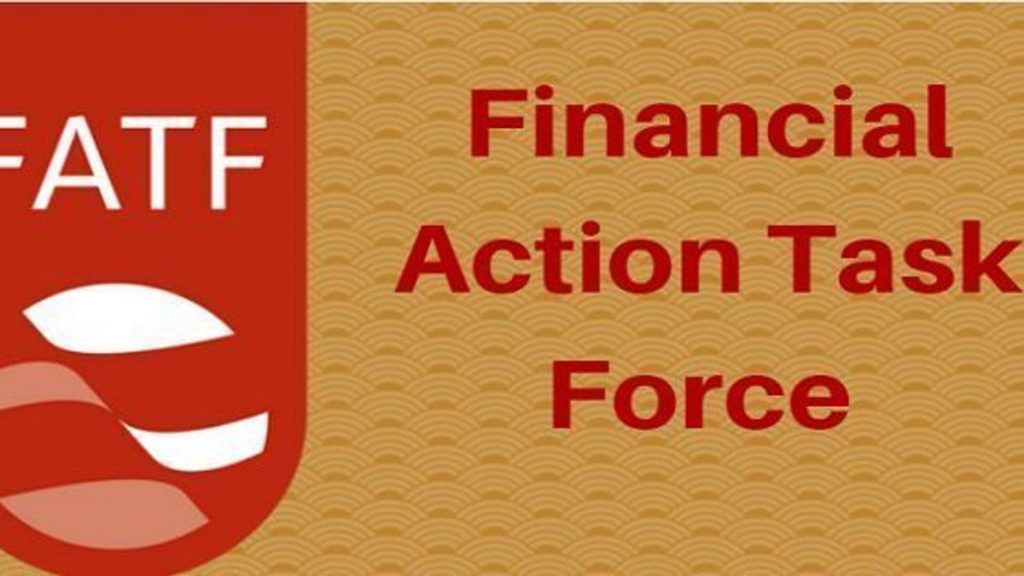KATHMANDU: Nepal has been placed on the grey list of the Financial Action Task Force (FATF), an international watchdog monitoring money laundering and terrorist financing activities. The decision was made during FATF’s second plenary session held in France, where Nepal was listed for the next two years. Along with Nepal, Laos has also been placed on the grey list, while the Philippines has successfully exited after two years.
The Nepali delegation to the FATF plenary included Phanindra Gautam, Secretary at the Office of the Prime Minister, and Hari Nepal, Director of the Financial Intelligence Unit (FIU) of Nepal Rastra Bank.
According to a source present at the FATF meetings, Nepal has been severely warned to improve its anti-money laundering system for next assessment.
Why Was Nepal Placed on the Grey List?
Being placed on the grey list means that Nepal has deficiencies in its anti-money laundering (AML) and counter-terrorist financing (CFT) frameworks. FATF raised concerns that Nepal’s financial institutions are vulnerable to money laundering, illicit fund transfers, and weak regulatory enforcement. The lack of strong preventive measures and the failure to implement existing AML/CFT laws effectively have contributed to this designation.
The grey listing does not imply that Nepal is directly involved in financial crimes but highlights its insufficient efforts in combating illicit financial flows. FATF will now provide Nepal with a set of compliance measures that must be adopted within the next two years. If Nepal fails to demonstrate substantial improvements, it risks being moved to the FATF’s blacklist, which would have severe economic repercussions.
Implications of the Grey Listing for Nepal
The grey listing carries significant economic and financial risks for Nepal. Some of the immediate and long-term consequences include:
Decreased Foreign Direct Investment (FDI): Being on the grey list makes Nepal a high-risk destination for foreign investors. Countries under FATF monitoring often struggle to attract FDI due to the perceived risk of weak financial oversight and regulatory enforcement. This could deter international businesses from investing in Nepal’s economy.
Stricter International Financial Transactions: Nepalese businesses and financial institutions will face increased scrutiny in international transactions. Foreign banks and institutions may impose additional compliance requirements when dealing with Nepalese entities, leading to delays and higher transaction costs.
Reduced Access to International Loans and Grants: Global financial institutions such as the World Bank, International Monetary Fund (IMF), and Asian Development Bank (ADB) often consider FATF’s grey list status when evaluating a country’s creditworthiness. Nepal may face challenges in securing international loans and grants, impacting its development projects and economic growth.
Higher Remittance Costs: Remittances from Nepalese workers abroad contribute significantly to the national economy. However, grey listing may result in increased monitoring and restrictions on money transfers, making it more expensive and time-consuming for Nepali workers to send money home.
Negative Impact on Nepal’s Banking Sector: Nepalese banks will face stricter Know Your Customer (KYC) and Anti-Money Laundering (AML) regulations. This could lead to increased compliance costs and additional documentation requirements, affecting banking operations and customer transactions.
Government’s Response and Action Plan
According to an official from the Prime Minister’s Office, Nepal still has a chance to exit the grey list within the stipulated two-year timeframe. “Despite being placed on the grey list, Nepal has ample opportunities to comply with FATF’s recommendations and exit within a short period if it follows the given action plan,” the official stated.
To address FATF’s concerns, the Nepalese government must take the following immediate actions:
Seizing and Investigating Illicit Wealth: The government must actively identify, freeze, and seize illegal assets linked to money laundering and financial crimes.
Strengthening Regulatory and Legal Frameworks: Nepal must amend its AML/CFT laws to align with international standards and improve enforcement mechanisms.
Enhancing Financial Transparency: Nepal’s financial institutions must implement robust monitoring and reporting systems to track suspicious transactions and prevent illicit financial activities.
International Cooperation: Strengthening collaboration with international financial watchdogs and regulatory bodies will help Nepal improve its compliance and credibility.
The Road Ahead
The Nepal Rastra Bank and government agencies must act swiftly to implement FATF’s recommendations. Governor Maha Prasad Adhikari previously hinted at the possibility of Nepal being grey-listed but expressed confidence that Nepal could rectify its shortcomings. Finance Minister Bishnu Prasad Paudel also acknowledged the need for immediate action, stating that Nepal’s representatives were unsuccessful in defending the country’s position during FATF discussions in the Philippines.
Nepal had introduced the Anti-Money Laundering (AML) and Prevention Act 2064 (2008 AD) on Magh 14, 2064 (January 28, 2008). However, weak implementation has led to repeated warnings from international regulators. Now, with a two-year deadline, Nepal must show concrete progress to avoid further economic and financial setbacks.
The Nepalese government and financial sector stakeholders must recognize the urgency of addressing these concerns. If Nepal fails to implement necessary reforms within the given timeframe, it risks severe economic consequences, including a potential downgrade to the FATF blacklist. However, if Nepal acts decisively, it can restore confidence in its financial system and regain its standing in the global financial community.

